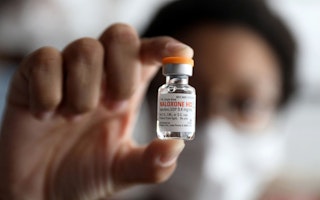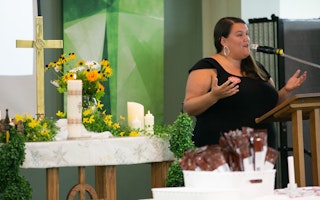Good Cop/Bad Cop: Police and Overdose
By Roxanne Saucier & Sanjay Patil
Police abuse of people who use drugs is all too common, including beatings, evidence planting, extortion, and raids that end in years spent in prisons or forced “treatment” centers. The climate of fear leads to many health harms for drug users. But perhaps none is more striking, and unnecessary, than death from overdose, too often the result of fear of calling for an ambulance and getting the police instead.
Police don’t necessarily have to be bad for the health of drug users. When it comes to overdose, some police are making moves to save the lives of people who use drugs. When the U.S. state of Washington enacted a law encouraging people to call for emergency help and assist in overdose situations, they realized they also had to get the message out to drug users that they needn’t fear arrest. A video about the new law features a captain in the Seattle police department and a county prosecutor. The implicit message: Maintaining public order doesn’t just mean arresting people; saving lives is more important.
Even police in tough-on-drugs countries are taking a proactive role in stopping overdose deaths. In some cities in Vietnam, police who encounter overdose victims call local drug user groups trained in overdose response.
In some places, police themselves carry the lifesaving medication naloxone that reverses overdoses. In parts of New York state and in Quincy, Massachusetts, for example, officers carry the antidote to use in an emergency.
During a summit on law enforcement and drug policy this summer, a lieutenant from Quincy spoke about the program:
“We had an incident where we had an officer [opposed to the naloxone program]. It was winter and he got dispatched to a call about a person lying in a snow bank. This individual and his friends had been doing heroin, he overdosed and the friends stopped the car and threw him into a snow bank. The officer administered Narcan [naloxone], revived him and got him to a hospital…within 45 minutes of arriving back at the police station he was dispatched again to save another individual....
I saw him later and asked him about his thoughts. He said ‘When I saw that kid in the snow bank I thought that could be my kid. If I didn’t have [naloxone] to help him, I don’t know how I could live with myself.’”
Yesterday, in a mountain town in western North Carolina that’s managed to reduce its overdose rate by 69 percent since 2009 through a community-driven approach, Obama’s “Drug Czar,” Gil Kerlikowske, spoke about the important role police should play in preventing overdose, saying, “Naloxone can be expanded beyond public health professionals, where it lies mostly now. It’s become an important tool for law enforcement also…We’re very serious about removing the legal impediments that can mean the difference between life and death.”
Experiences from Vietnam and the United States remind us of the critical role that police have as first responders to crises of all kinds, and that a human life is always worth saving. Now both police and advocates for people who use drugs need to do more to stop these needless deaths.
This blog is part two of a blog series in advance of Overdose Awareness Day, which takes place on August 31, 2012. Part one is available here: http://www.soros.org/voices/police-overdose-and-moral-responsibility.
Roxanne Saucier is a researcher and analyst for the Open Society Public Health Program.
Until January 2020, Sanjay Patil was a senior team manager for the Strategy Unit of the Open Society Foundations.

